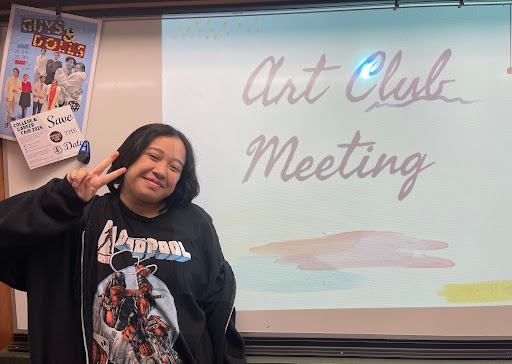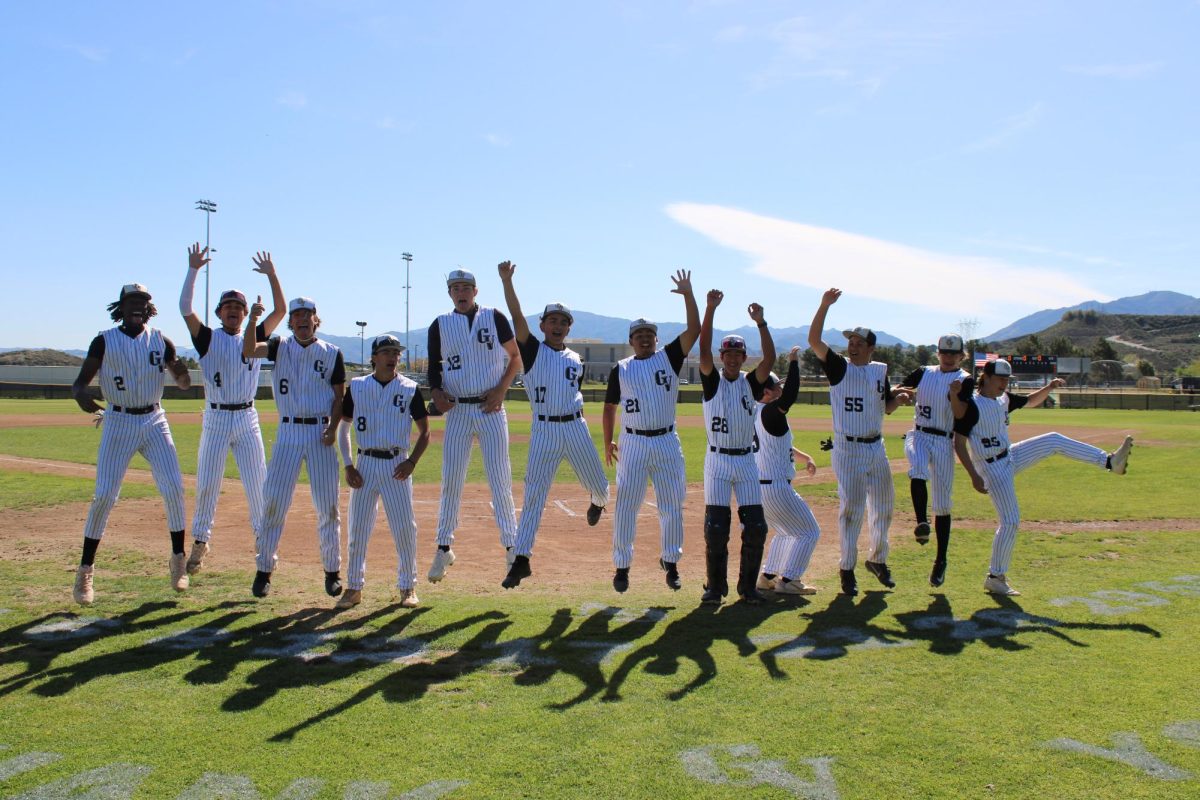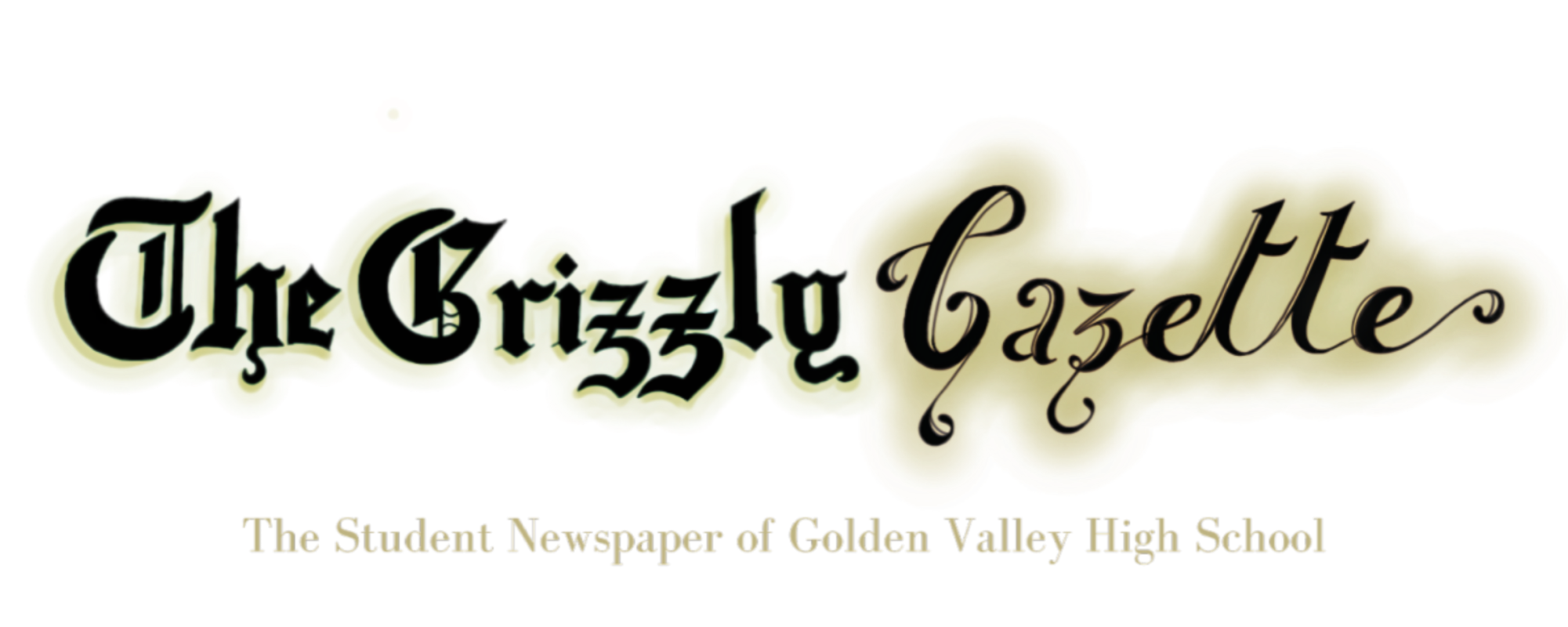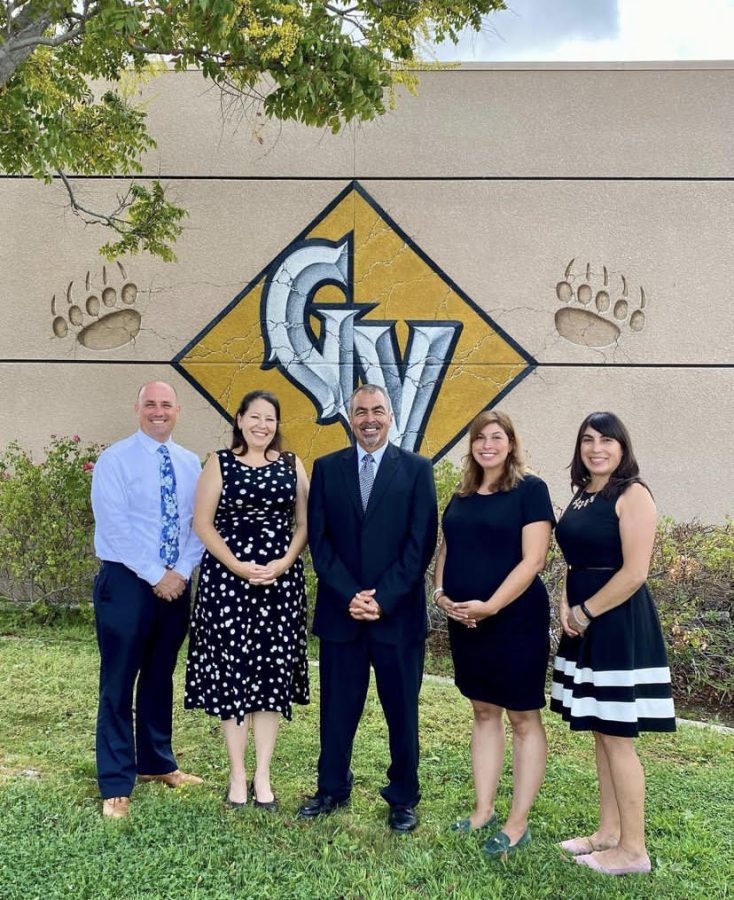‘Animosity’ or ‘A Difference in Perspective’? Exploring and Addressing the Miscommunications Between Staff and Students
Golden Valley’s principal, Mr. Frias, and the assistant principal team, Dr. Delgado, Mr. Necessary, Ms. Ambrose, and Ms. Landeros, beside the Golden Valley Logo.
There are often miscommunications between the staff and students. In certain situations, a true understanding of the perspectives and conclusions of each side is often overlooked, differing every now and then. One of the most prominent instances of this is between students and the assistant principals, referred to as APs.
Many students often don’t understand why an assistant principal has taken the actions they did in certain situations or the manner in which they took those actions in the outcome. Multiple Golden Valley soccer players explain they had an encounter in which an unnamed assistant principal, during the summer of 2021, was “berating [them] to put on masks even though we were playing and it was over 100 degrees out.” The student had an understanding that the policy at the time allowed them to not wear a mask under these conditions. A misunderstanding of why the assistant principal had taken the action has caused resentment that continues to foster among students.
This lack of understanding and resulting anger is caused by the major communication barrier that lies between staff and students. The students have a very different perspective from the staff. One assistant principal, Jennifer Ambrose, explains that she understands that “from students, to parents, to administrators, we’ve lived different lives and we’ve seen different things”, which may cause one to view an event in a negative light, while others are more understanding of the circumstances. This is why she claims she is “never surprised” when a student comes in and disagrees with “a set of rules or how an administrator administers.”
Another situation such as this occurred just last week, when an assistant principal took a ball away from students, on the upper quad during brunch at the beginning of this school year. One of those students involved stated, “I understand why she took the ball away, it isn’t allowed, but they did it with such animosity.” It is not only the understanding of why things are done, but also the manner in which they are conducted that is lost in the translation between staff and students.
Brian Necessary, another assistant principal, explains that “in any organization where a system needs to be kept running and there are individuals, they will feel like they as a person are limited. Not everyone likes to hear direction but the communication, style, and approach [in which that direction is given] can have an effect.”
When dealing with a student, the APs do their best to maintain a level of justice for both parties. For the assistant principals, it is not a matter of discipline, but accountability. Mrs. Ambrose tells us, “As APs, we’re responsible for the 2,200 students, almost 300 staff members, on campus so the lens is different. So I understand and respect that there’s different perspectives.” As assistant principals, they do their best to try and see the situation in the students’ shoes, rather than act according to just their perspective. The opinions of students are of major importance to all assistant principals.
Mr. Necessary shares how he tries to deal with situations with an open mind and is aware that students will not always see the resolution as “fair”. He acknowledges the misconception that APs seek to blame students. “An assumption is that administrators are trying to find trouble or trying to get you in trouble, and it’s just not like that. There are times where something is wrong and we have to handle it, but we are not coming with the perspective that some people are perceiving.” Just like the other assistant principals, he believes it is key to consider the student’s feelings and prioritizes fairness at all times.
The responsibilities of being an assistant principal are immense, and occasionally overwhelming.
Having to deal with crowds of students and strenuous situations, APs are underestimated. Mr. Necessary shares about having to handle such circumstances. “It’s helpful to view the situation with patience because of how much is happening compared to the staffing we have to do the work. My work day is frequently 16 hours, either on campus, at an event, or doing work from home. So, those are the circumstances that we’re working under”. They are constantly dealing with multiple different situations daily, which is a tremendous weight on their shoulders. It is important to keep in mind the masses of situations assistant principals have to endure.
Mrs. Ambrose also tells us about having to balance the duties of being an AP. “The job is not easy, it’s very complicated and messy. It’s messy because we’re working with human beings and by nature, I’m a fair person. I want things to look fair and be fair. But that’s not how this job is. I do my job to support students and create the brightest futures they can while they’re here”. With a full schedule nearly every day, it is no surprise to hear about the never-ending work of being an assistant principal.
The unnamed students first-handedly read the AP’s perspective and shared their new thoughts on their personal instances with miscommunication, as they explained earlier. One student claims that they now “can understand where they are coming from and I know it’s hard to get your point across while still being authoritative and having kids understand.” They continue saying “for us, it’s still hard to be understanding of a command (for lack of a better word) if it is given in a harsh tone.” They claim they are more likely to do something when the tone is “more respectful and calm” rather than “demanding.”
The students claim they are understanding how stressful maintaining campus rules and doing the job of an AP can be, but they still wish to see more patience and calmness. With a newfound understanding of the rationale behind how APs handle student conflicts, they hope to feel more comfortable communicating with the APs about any problems that may arise.
At Golden Valley, the voices of students and staff are held in high value. The way students interpret a situation could contradict the way an assistant principal sees it. Both sides are equally as important. As heard previously by both parties, it is important to view such situations with patience and understanding. By considering both sides of the miscommunications, reaching a common ground between the staff and students will be easier. As heard previously by both parties, it is important to view such situations with patience and understanding.

Marie Hamilton is one of the two editors-in-chief. This year she’s a senior, and involved in the Red Cross and Bracelets for Cancer Club. She’s also an officer for CSF and a member of National Honor Society.
This year, she hopes to not only write about events going on in our campus, but how these events turned out and ways to improve next time. Marie is very passionate about sharing the good and the bad of every situation, as well as exploring ways to improve as a community. Having a part in this newspaper is very important to her since she has always believed strongly in student spirit and involvement and hopes to help foster that. By making sure students can easily involve themselves, she hopes to help create a positive environment for learning and life.

Karen Jimenez is one of two managing editors for the Campus News Team. She is a senior at Golden Valley High School, and is dedicated to spreading positivity everyday.
Through her time in high school, she has developed a strong sense of devotion for writing. Overjoyed to be sharing the managing editor position with Marie Hamilton, she looks forward to unraveling more of her writing skills and work alongside the amazing Campus News Team.
In her free time she enjoys spending time with her sisters and is a volunteer at the children’s center at her church. To her, it is tremendously important that all students have their own voice and see themselves represented in the new online newspaper. She loves spontaneous hang outs with friends and stargazing at night.



















